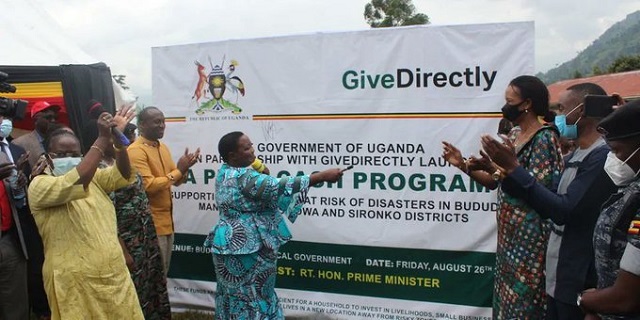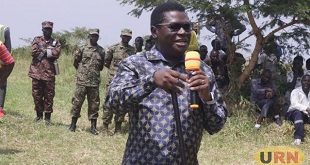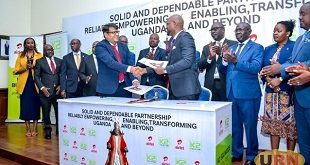
Mbale, Uganda | THE INDEPENDENT | Residents in the districts of Bududa, Manafwa, Sironko, and Namisindwa, are still awaiting the government’s promise of top-up funds to relocate from landslide-prone areas.
In 2022, GiveDirectly, in partnership with the Office of the Prime Minister, launched an $8.5 million disaster preparedness project. The project aimed to provide unconditional cash transfers of 7 million shillings to 4,000 households living in high-risk areas of the Elgon region.
Ivan Ntwali, GiveDirectly’s Country Director, explained that the cash transfer initiative was designed to help families acquire safer land, construct homes, and support their livelihoods in new areas.
Ntwali noted that when the project was launched, they had the opportunity to present their plans to President Yoweri Museveni and the entire cabinet.
He added that during their presentation, the president expressed his support for the project’s vision and directed the government to provide each household with an additional 10 million shillings to further assist their relocation efforts.
Jenipher Kakayi, a beneficiary from Manafwa District, shared that she and her husband received cash from GiveDirectly in two instalments. They used the funds to buy land, build a small house, and even purchase a chainsaw. However, she noted that they have not received any support from the government.
“We haven’t received a single coin from the government. It seems that was just another empty promise. But without the government money, GiveDirectly has helped us move out of risky areas and find a safer, better life,” Kakayi said in Lugishu, with a translator assisting our reporter.
Two other project beneficiaries interviewed by our reporter shared similar experiences. Micheal Mutsentse from Bududa noted that this is not the first time the government has promised financial assistance to people in the area.
“We haven’t received any money from the government. They always promise but never deliver. If they send it, we’ll gladly use it to further improve our livelihoods in the areas where we’ve relocated. But if they don’t, life will go on,” he added.
Hosea Kigayi Kimono, the Manafwa District Chairperson, also acknowledged the delay in government payments, noting that this setback has limited the potential impact of the support.
He explained that if the government funds had been provided alongside GiveDirectly’s assistance, beneficiaries could have seen an even greater improvement in their lives.
“If they have managed to change lives with the 7 million shillings, imagine the impact if they had received 17 million while the project was still active,” he said.
“This could have created a lasting effect for these households. With the 7 million, families have been able to buy land, calves, and more. If they had received the government funds as an additional boost, they could have afforded even larger plots of land and more livestock. You see what I mean?” he explained.
Raphael Magyezi, the Minister of Local Government, said that the government is fully committed to providing the additional funds, as endorsed by the president, and assured that the payments will be made without fail.
However, Magyezi expressed concerns over bureaucratic delays, stating that government funds often take time to reach beneficiaries, and when they do, the amounts may not be accurate.
He cited the government’s Parish Development Model, where, while GiveDirectly successfully sends the full 7 million to each recipient, the government’s promised 1 million under PDM often does not reach the beneficiaries in full amount.
According to the project report, the top five spending priorities among cash transfer recipients in the Elgon region were livestock, land, home construction, savings, and education. However, while many families purchased land in other areas, they had not yet relocated, planning to move at a later time.
Forty-eight percent of recipients invested part of their funds in livestock, which is a popular choice in the region.
Meanwhile, the Elgon region has increasingly suffered catastrophic landslides over the years due to heavy rainfall, which destabilizes slopes and causes large amounts of debris to shift from higher elevations to lower areas under the force of gravity.
This ongoing risk has displaced many families in Eastern Uganda, putting their lives in jeopardy. To enhance safety, the government and other development partners have initiated several efforts to relocate residents living in landslide-prone areas of the Elgon region.
*****
URN
 The Independent Uganda: You get the Truth we Pay the Price
The Independent Uganda: You get the Truth we Pay the Price


